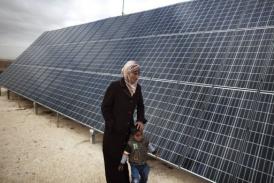The Egyptian economy is on a recovery track, as a result of the reform programme’s decisive policy actions, with a forecasted growth rate of 4.8% in fiscal year (FY) 2017/18, up from 4.2% in FY 2016/17, said IMF Mission Chief for Egypt Subir Lall at a press conference on Tuesday.
“Inflation steadily declined to around 21% in December and is expected to get in the low teens range by the end of this year, due to the CBE efforts to control the inflation,” Lall added.
Commenting on Lall’s statement, Reham El-Desoki, senior economist at Arqaam Capital Research, said that she expects lower inflation and interest rates in 2018, with inflation averaging 13% in 2018, compared to 30% in 2017. She added that she forecasts economic growth to register 4.5% in FY 2017/18, 5.5% in FY 2018/19, and 6.2% in FY 2019/20.
“Progress in social protection programmes have been witnessed, monthly food subsidies were more than doubled in FY2017/18 from EGP 21 to EGP 50 per beneficiary, the coverage and the benefits of the targeted cash transfer programmes Takaful and Karama has significally increased to compensate the negative effects of the reforms,” she said.
In response to a question about the medium term challenges facing Egypt, Lall responded that in order to transform the Egyptian economy to a dynamic and sustainable one, the country needs to have equal opportunities for everyone and create more jobs.
He added that macroeconomic stabilisation often comes at a price, however, it can have medium pay-offs, as the main target of these reforms is to allow private sector growth, as it is the only party that can provide the 700,000 jobs needed every year.
Furthermore, he expressed the importance of labour market and education reforms, as they are essential to ensure that the workforce has the skills needed by the private sector.
Lall emphasised fair competition as an important area of reforms, as it will support improvement in the quality of services and products available. Higher growth also needs liberalised access to finances and land, adding that the state can provide a supporting role, but it should not compete directly with the private sector.
In regards to government debt, Lall said, “it made sense to tap into the eurobond markets as Egypt has done, as interest rates decline in the medium term, a rebalancing between domestic and foreign borrowing needs to be reexamined. We project debt in the medium term to be manageable,” Lall said.
Moreover, in terms of the pricing of energy subsides, the IMF mission chief explained that the authorities are determined to abolish subsidies in the near term, except for LPG.
“Energy is an input for a lot of economic activities, so removal of subsidies would be very good for the Egyptian economy and job creation, as it allow the creation of jobs in non-capital heavy sectors,” he added
Finally, Lall explained that the capital gains tax will be part of the ongoing discussion with the Egyptian authorities, as Egypt’s current tax to GDP ratio is quite low at 17%.
On the other hand, he said that the IMF’s third review of the reform programme is expected to be completed around June 2018.




